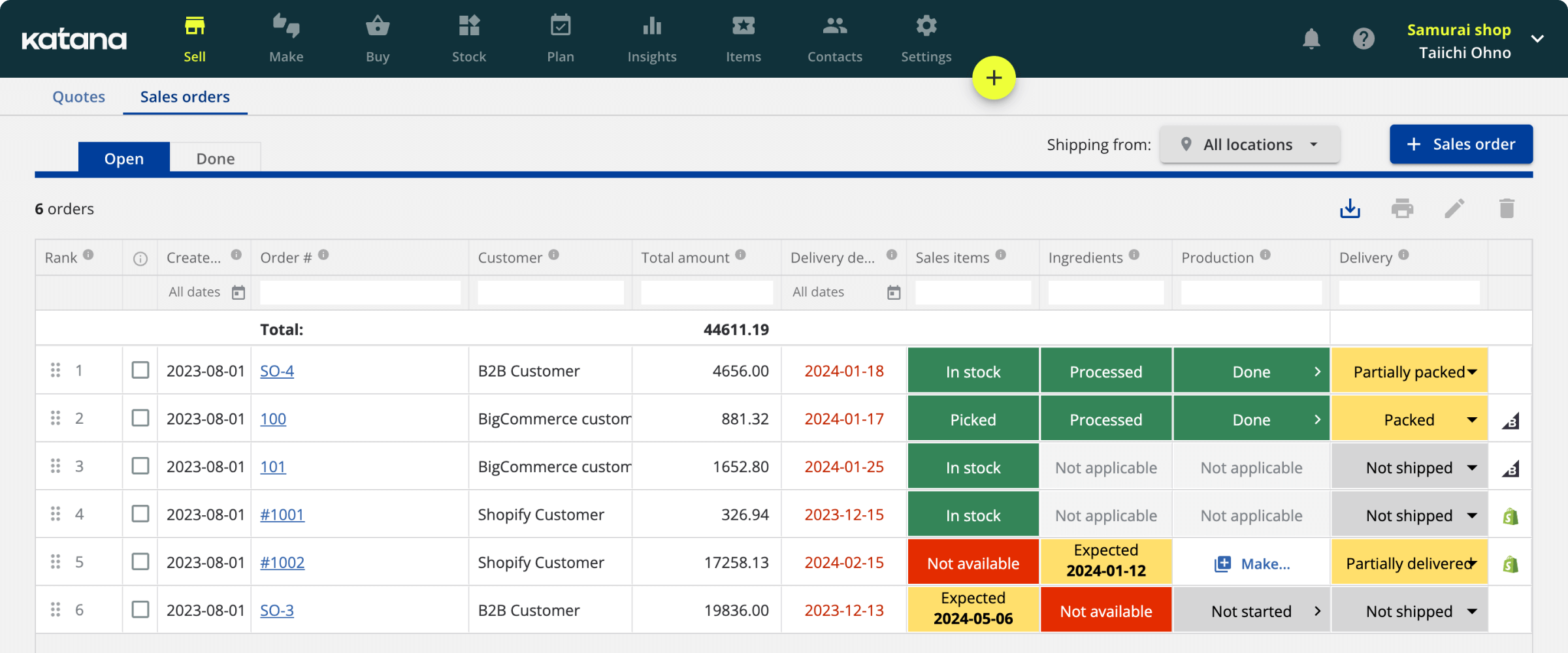Sell me this SaaS — A chat with our Head of Sales, Matt Sullivan
Matt Sullivan — the Head of Sales in the Sales team at Katana — sits down to tell us all about his journey to his current position here and life as a remote worker based in Prince Edward Island, Canada.
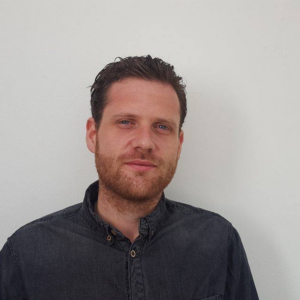
James Humphreys
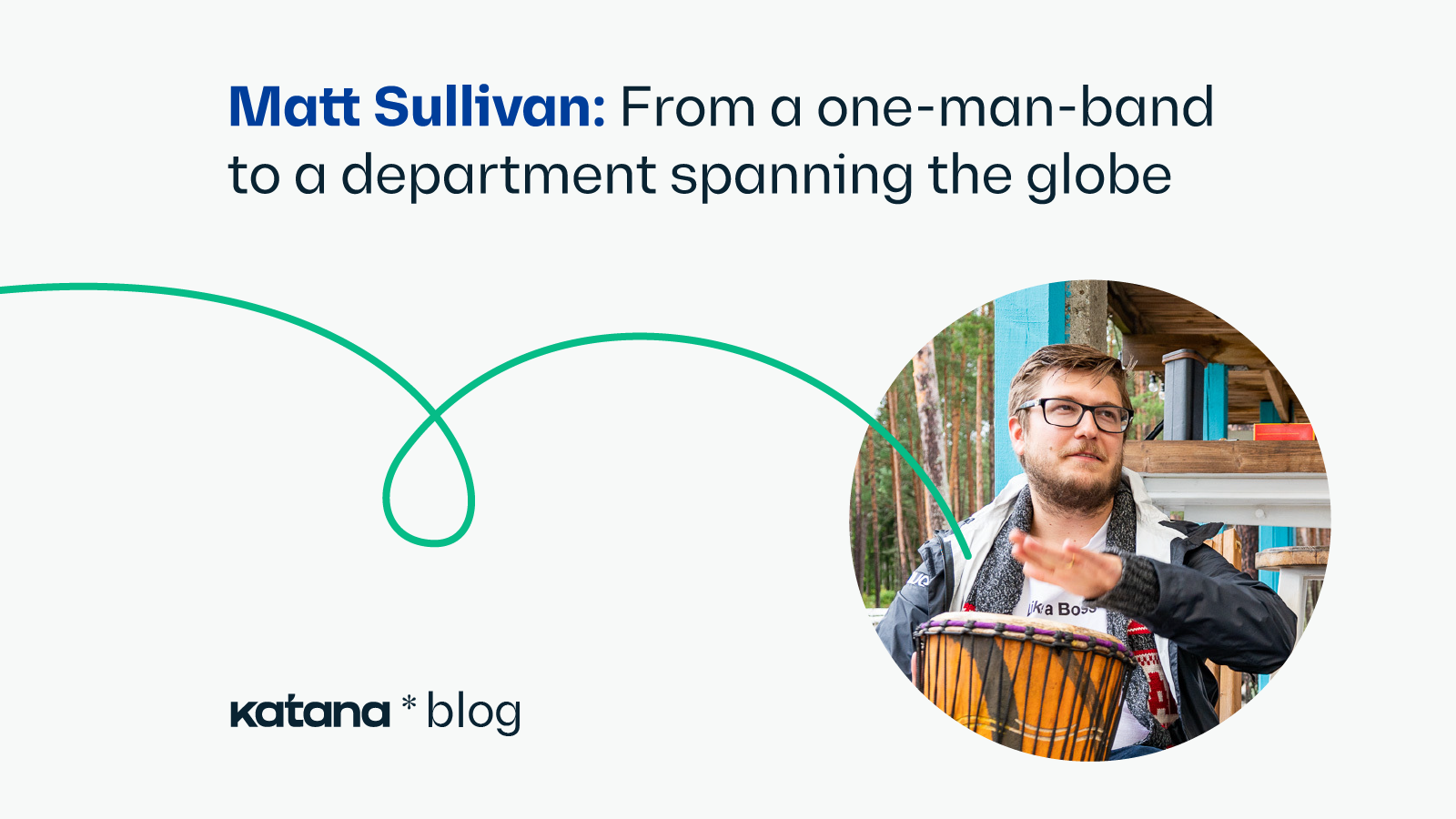
Entrepreneurship courses through his veins.
He’s a website builder, social media marketer, and a man on a mission to create businesses every which way but loose. For example, he was one of the founders of “Be Your Own Bartender (BYOB),” a touch-screen kiosk designed for liquor stores to educate customers on cocktail recipes by printing off the directions and what ingredients to buy. During this period, he learned that his passion was in the sales side of business management.
So, who exactly is this man of mystery?
Matt Sullivan, disc golf throwing, pool ball potting, and comedy enthusiast, has taken a moment out of his busy schedule to tell us how it is working at Katana.
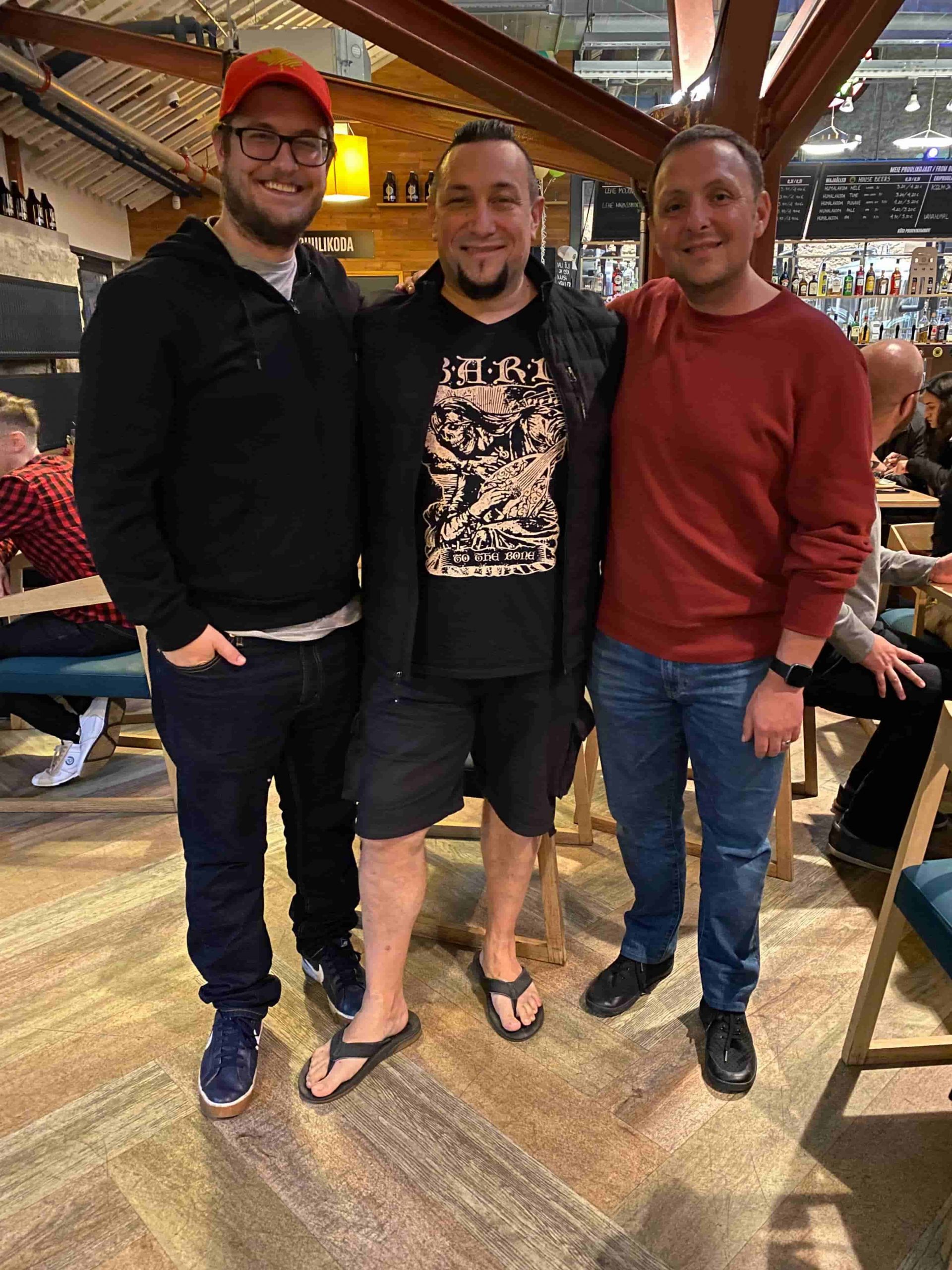
How did you come across Katana?
I was working for TradeGecko at the time.
Another Katanaut, Mark Cohen (Head of Technology Partnerships at Katana), researched manufacturing software for our clients. He was handling integration partnerships, and Katana was one of these partners. That was my first-time hearing about Katana, and when I started looking into them, it raised so many questions, like:
“Oh, where’s Estonia?”
I went down a rabbit hole, learned all about this cool new startup company, and even looked into how the Estonian culture is tech-focused.
What stood out for me was that Katana was modern and easy to use — which was a differentiator in the market for TradeGecko too. Katana really resonated with us and was a great fit, so it naturally became a good partnership at TradeGecko. Long story short, TradeGecko was eventually acquired by QuickBooks and became QuickBooks Commerce, while Mark and I became Katana employees.
Why did you decide to join Katana?
Katana was without any sales reps for several years and was product-led until COVID hit.
The supply chain issues caused by the pandemic led to a major surge in terms of customers for Katana as more companies began manufacturing in-house, especially in the North America region — it was apparent that Katana needed a presence there to support these customers and prospects. Initially, we would offer 1-hour demos to anyone who asked. Still, as more and more people started looking into ERP solutions in the wake of COVID, it became obvious that we just didn’t have the processes or capacity to handle this influx. That’s when I came on board to help:
- Take these calls
- Develop our inbound sales process
- Grow the sales team and make it more efficient
I started around a little over a year and a half ago.
From then, we’ve grown from a one-person sales rep to a fully-fledged department with:
- Outbound SDRs
- Inbound SDRs
- Sales Specialists based in North America, Europe, and New Zealand
What was your process for building the sales department?
I have experience using ERP systems — so I learned the product for about a week, and I got to calls pretty much right away.
At first, I would take something like eight qualification calls a day, and then we would analyze the results to see how many were a good fit to help us better target prospects. Basically, I would open my calendar on a free day to take calls, and my calendar would fill up, which was amazing. But it quickly made me realize that there are still more people who want to talk to me — so we began hiring more sales reps to take more calls.
It was sometime in spring last year when we finally hit a point where the calendar didn’t fully book up.
That’s when my role evolved to focus more on the top of the funnel stuff.
The first year was all about laying down the process, from taking a call to managing the deal. In the beginning, we played around with the structure but always kept the customer experience as the north star. Now, one of my main responsibilities is making sure we have a consistent number of call bookings for our sales specialists.
The fun thing about this role is there’s always a new challenge or problem to solve.
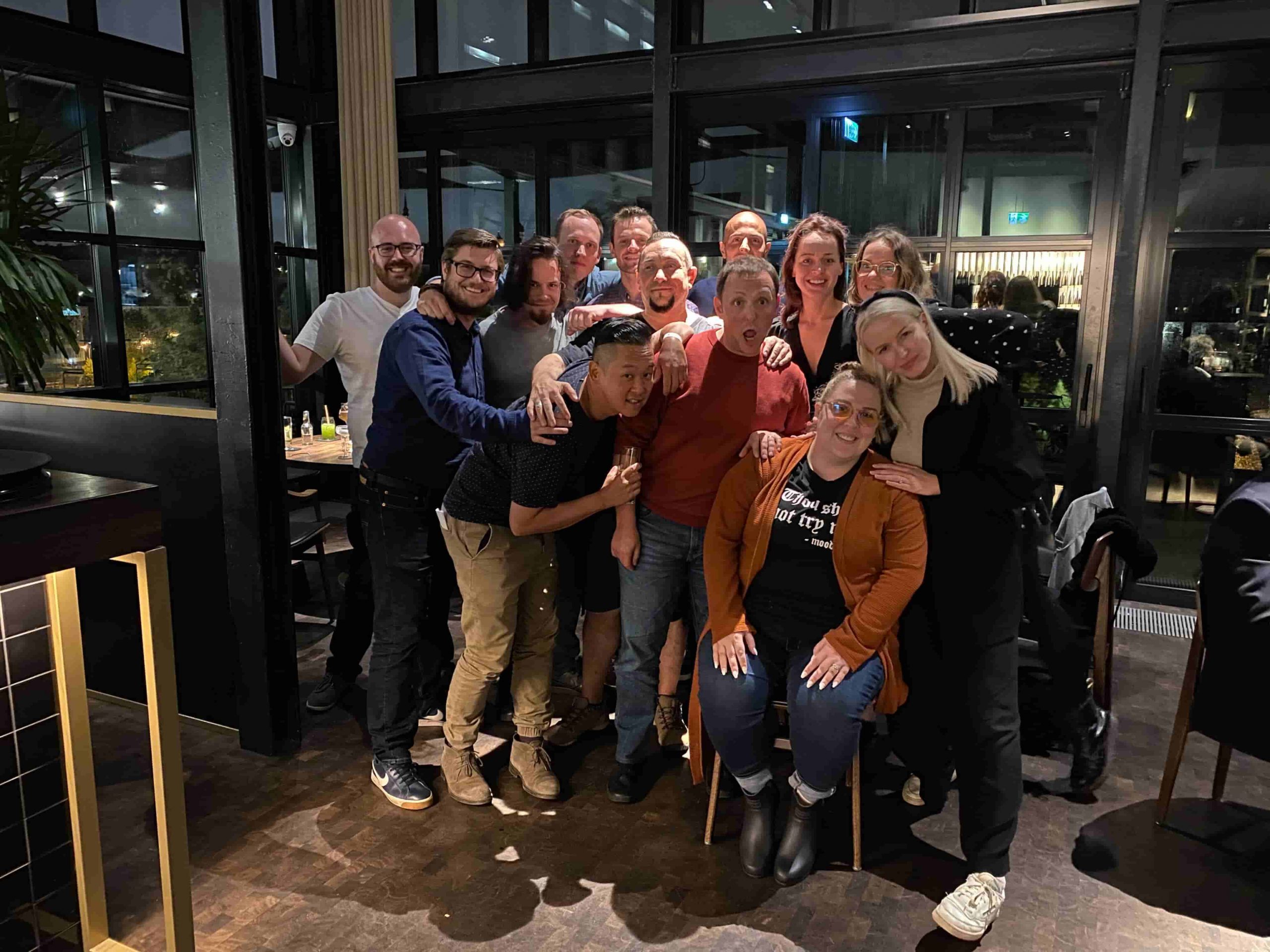
How have you structured the sales department?
Basically, what we set up was a pod structure.
This means a sales specialist and an onboarding rep are together as a team. This creates better alignment between the onboarding and sales teams, leveraging the onboarding rep’s product knowledge. This means if something comes up that needs investigating, the onboarding rep can dig into it while the sales specialist manages the relationship and stays on top of things.
Have you learned anything about yourself during this development, from a one-man-band to a department spanning the globe?
The main thing I struggled with was that I could be a perfectionist.
The biggest hurdle for me to overcome is not having enough time to do everything as perfectly as I wanted to. With so many different priorities and things that need to get done, you’re not going to be able to get everything perfect first try — we’ve taken a lean approach with our role and how we tackle challenges. Katana is in a position where the ball needs to get rolling, so instead of performing extensive planning, we make a general strategy, research the results, re-iterate the plan, and set a new benchmark.
It might not be perfect the first time around, but it helps avoid paralysis by analysis.
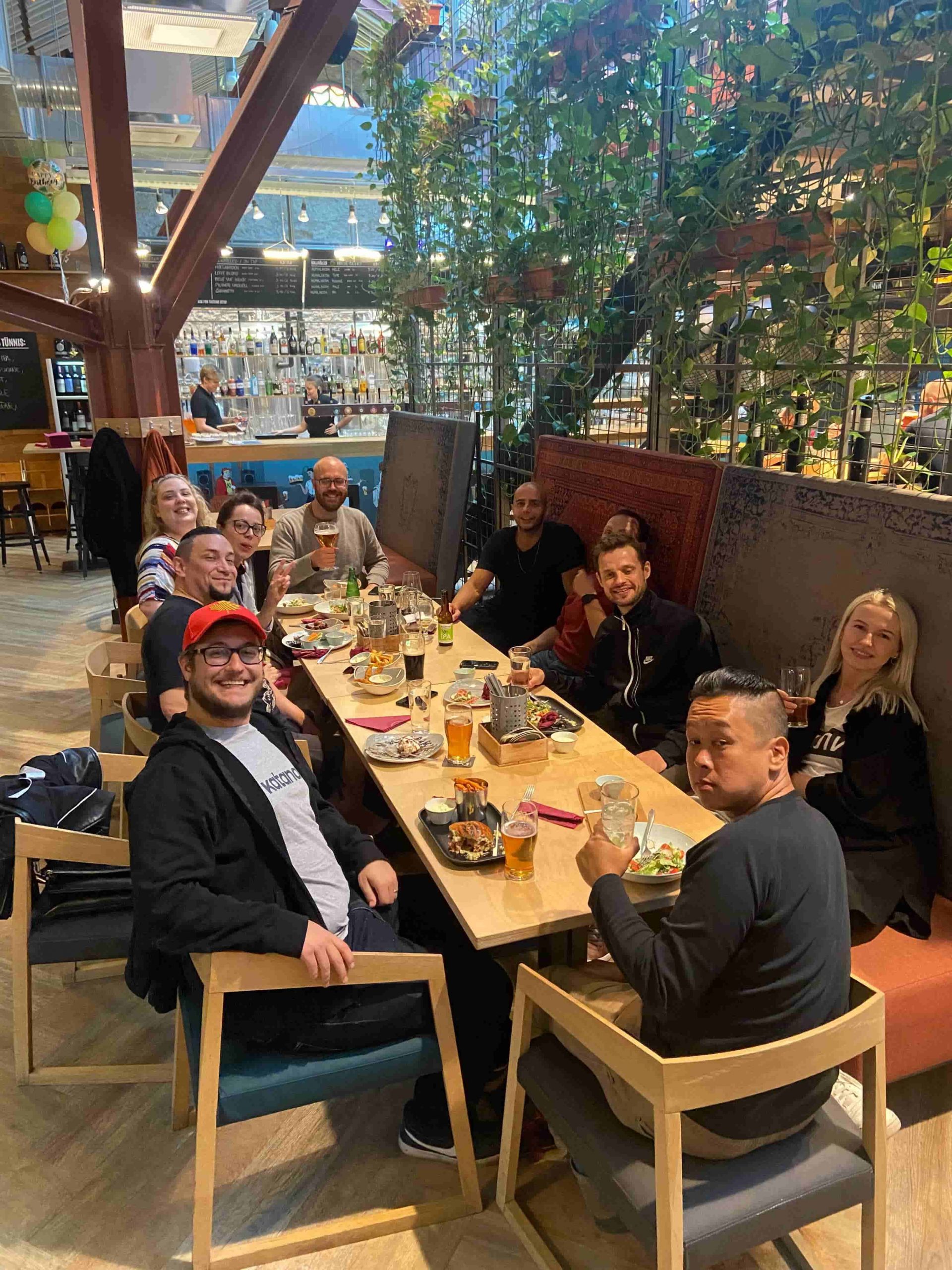
What has been your experience working remotely?
I was actually looking for remote working opportunities, but I was waiting for the market to catch up with embracing remote work — and then COVID happened.
One thing I’d say is that remote working isn’t for everyone. You need a lot of self-discipline, and it all depends on your situation at home — do you have an environment where you can focus. One thing you can do, and it’s something I have done in the past, is work at a co-working space, which is a good alternative because you get out of the house but can still work remotely.
A drawback of remote working is that it takes longer to integrate into the team.
Fortunately, that hasn’t been the case with Katana — they’re very remote worker-friendly.
Whenever I did remote working before, I was like an outlier, one of those people who worked remotely and missed out on what was going on in the office. Whereas Katana has been very mindful of their remote workers because everyone outside of Estonia is working remotely. For example, team meetings are recorded, so if you miss something due to the time zone difference, you can watch it later — overcoming challenges like this hasn’t been an issue at Katana.
Plus, the global trip to Estonia and meeting everyone face-to-face made a huge difference.
Do you factor in social time with other remote workers?
With remote working, the thing that happens quite often is that when you talk with others, it’s always just about work.
But you work better if you’re actually friends with your co-workers.
We budget some of our time during the week for non-work-related meetings. Like, on Fridays, we’ll have an extracurricular type of meeting with the Customer Experience team — and sometimes, the North Americans have a virtual happy hour at the end of the week. It was pretty smart to do this because we’ve now built this tight-knit team that can work effectively together versus being a team that never has chit-chat or knows each other on a personal level.
With remote working, it’s really easy to lose that water cooler chat, so it’s important to factor that into your work life.
Three of us work here in Prince Edward Island — once the restrictions lift, we’ll likely be doing more meetups again.
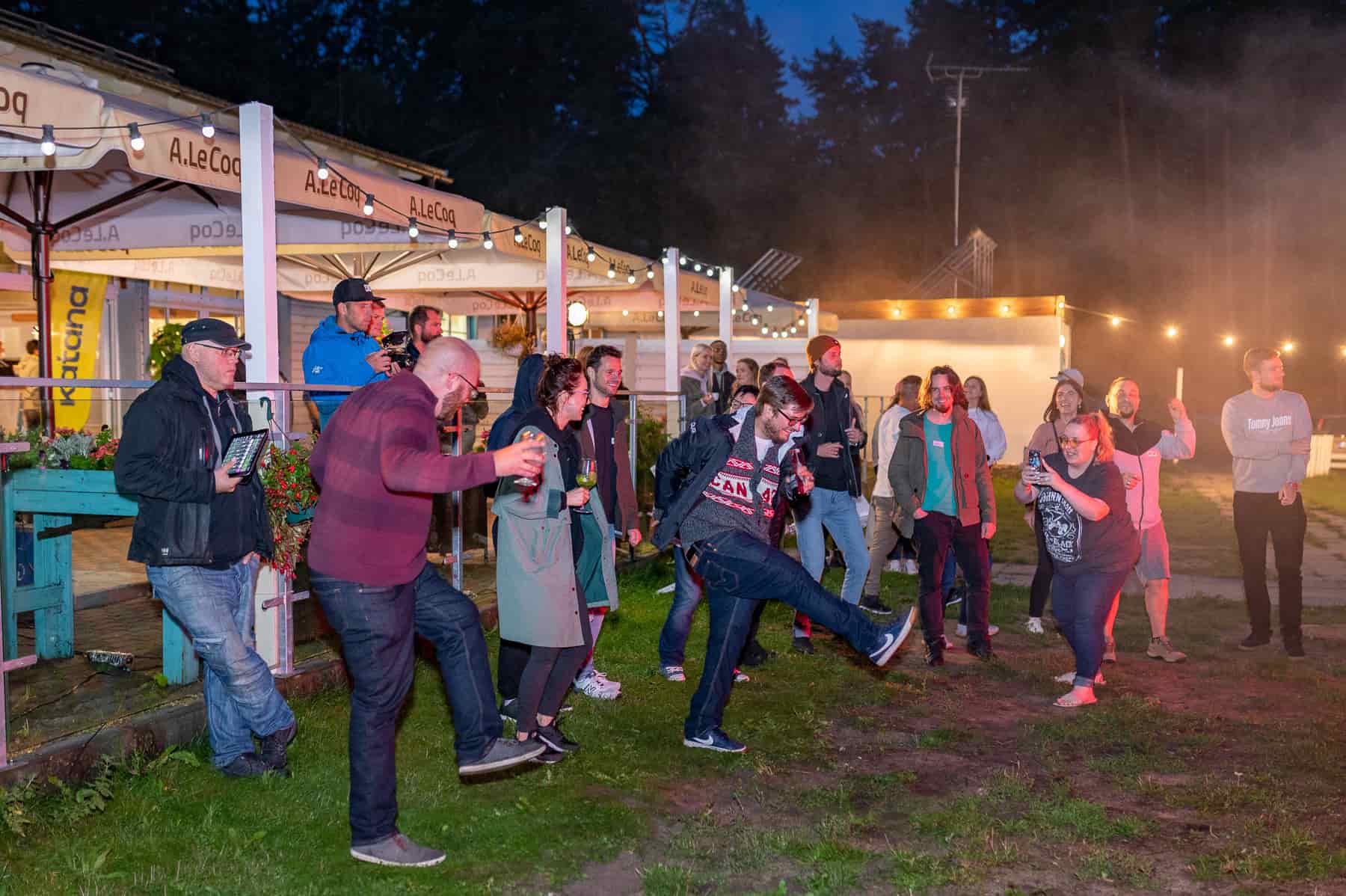
What would you tell someone to expect if they are joining Katana?
Basically, I tell people that we’re professional, but we’re authentic and not robots — We’re people. We have a very people-orientated culture, and you’re not going to be dealing with people’s egos. If I was to summarize it, people who join should just be real.
We’re not super corporate or anything like that.
Our structure is pretty flat in that sense — you don’t need to move through a chain of command to speak to anyone. Everyone is pretty approachable.
Would you rather have a lifetime supply of Nutella or maple syrup?
It’s a difficult question to answer because it’s like asking do you want money or gold?
I don’t know if it’s the Canadian in me, but I’m leaning towards maple syrup. I think maple syrup is a valuable commodity. Maple syrup is highly coveted in Canada.
There’s even a documentary about a major maple syrup heist that happened here.
Who would you rather team up with, Wonder Woman or Captain Marvel?
I would say not Wonder Woman, just because the actress who plays Wonder Woman, Gal Gadot, released that God-awful version of John Lennon’s ‘Imagine’ during the pandemic to try and get us all through this period.
Just because of the cringiness of that video, by default, I’ll go with Captain Marvel.
Would you rather be in a zombie apocalypse or a robot apocalypse?
I would need to go with a zombie apocalypse because I feel like I’m more prepared for it.
I’ve watched a lot of zombie movies and shows through the years. I live on a very small island. Looking at how we’ve dealt with the pandemic, I feel like the response would be a lot similar to a zombie apocalypse. Maybe we’d be a little more aggressive, like cutting off the bridge to the island.
Whereas a robot apocalypse, I’m not ready for that.
Are my electronics going to turn on me? At least I know zombies aren’t going to get me through my computer!
I’m not sure if you’ve seen small soldiers, but I don’t want my toaster running after me and stuff like that.
Become a Katanaut
We support 1000s of manufacturers bringing their production to life. Come and grow your career today here at Katana.
P.S. One thing we forgot to mention. Matt is keen on comedy writing too, take a look for yourself:

James Humphreys
Table of contents
Get inventory trends, news, and tips every month
Get visibility over your sales and stock
Wave goodbye to uncertainty by using Katana Cloud Inventory for total inventory control
